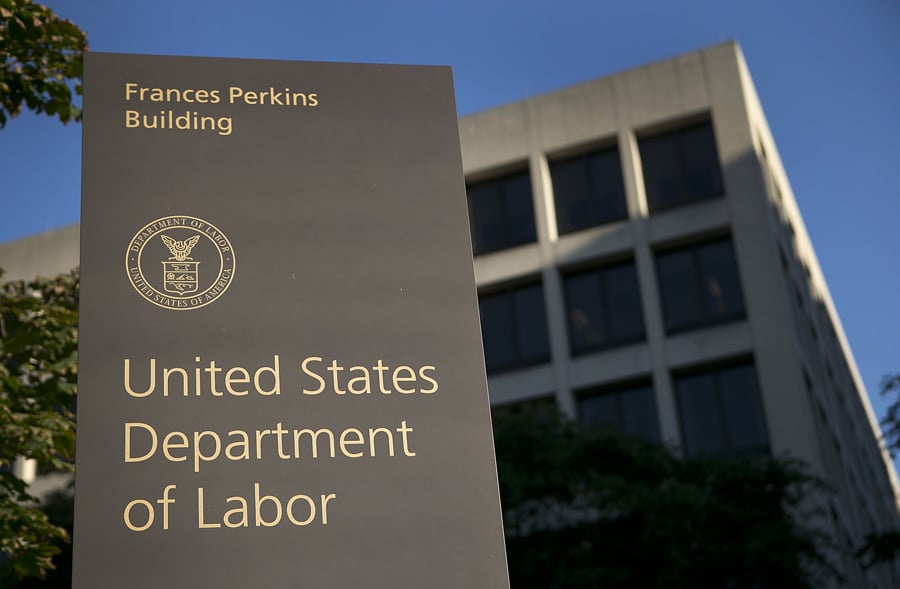

Brokerages and insurance companies are raising concerns about a Department of Labor proposal that would set investment advice rules for retirement accounts.
The proposal would replace an Obama administration regulation the financial industry fiercely opposed and that was vacated by a U.S. 5th Circuit Court of Appeals ruling on an industry-backed lawsuit.
The latest proposal would provide exemptions under the Employee Retirement Income Security Act to allow investment fiduciaries to receive compensation, such as commissions, 12b-1 fees and revenue sharing, that would otherwise be prohibited as long as they act in the best interests of plan participants and adhere to impartial conduct standards.
In the preamble to the proposal, DOL reinstates the five-part test for determining who is a fiduciary that the Obama rule scrapped. Under that rubric, financial advisers are fiduciaries if they provide investment advice for pay on a regular basis by agreement with a client that the advice will be the basis for personalized investment decisions.
But a law firm whose clients include brokerage firms, asset managers and insurance companies said the DOL proposal makes the five-part test too expansive.
“We believe that the preamble attempts to significantly rewrite the five-part test for determining fiduciary status in a way that would effectively reinstate the 2016 fiduciary rule and thus severely harm the ability of millions of Americans to access investment assistance,” Kent Mason, a Davis & Harman partner, wrote in a July 30 comment letter.
“We ask that the final exemption repudiate the preamble language in the proposed exemption regarding the interpretation of the five-part test … and otherwise stay silent on the interpretation of the five-part test,” Mason wrote.
The DOL introduced the proposal in late June. The public comment deadline is Aug. 6.
Fiduciary status is crucial in the context of advice on rolling over assets from an employer-sponsored retirement plan to an individual retirement account.
Whether rollover advice “satisfies the regular-basis prong of the five-part test depends on the surrounding facts and circumstances,” the preamble states.
For instance, the DOL said rollover advice could be the first step in an ongoing relationship because the financial adviser will continue to work with the client on managing the IRA or by giving financial advice outside a retirement plan.
“Effectively, financial professionals are forced into choosing between accepting fiduciary status or foregoing any future relationship with their customers,” Mason wrote. “Thus, as a practical matter, under the preamble language, the regular basis test is effectively eliminated.”
Mason argues the DOL’s interpretation of the five-part test would “resurrect” the fiduciary definition contained in the Obama rule and violate the 5th Circuit decision, the Administrative Procedure Act and Trump administration regulatory policies and orders.
DOL Secretary Eugene Scalia was the lead attorney in the industry lawsuit that overturned the Obama fiduciary rule. Scalia participated in drafting the current DOL proposal.
It was written to align with Regulation Best Interest, the new broker advice standard promulgated by the Securities and Exchange Commission that went into force on June 30. Brokers who comply with Reg BI likely would also comply with the DOL fiduciary proposal when recommending rollovers and giving other retirement investment advice.
Reg BI does not cover insurance sales professionals, so their ability to use the DOL exemption could be limited, an insurance lobbyist said. It doesn’t take into account the independent agent distribution model in which one salesperson may represent several companies, he said.
“As a result, insurers are not in a position to serve as a fiduciary financial institution as compared to, say, a broker-dealer, where monitoring and control of the fiduciary advice provider would be necessary to comply,” said the lobbyist, who asked not to be identified so he could speak freely about upcoming comment letters. “Insurers are only able to oversee their own products and compensation practices -- not those and potential conflicts of other companies or arrangements.”
While the brokerage and insurance industry are raising objections to the DOL proposal, investor advocates are continuing to blast it as well.
Proponents of the Obama fiduciary rule tend to be opponents of Reg BI and the current DOL proposal, which they criticize for bringing back the five-part test that they say makes it too easy to shirk fiduciary responsibility.
“It is a bad rule. It is clearly anti-fiduciary because it reinstates the prior situation where there are vast loopholes and shortcomings,” said Knut Rostad, president of the Institute for the Fiduciary Standard.
Investor advocates have asked the DOL to extend the 30-day comment period to 90 days. The DOL hasn’t responded to that request.
After reviewing public comments, the DOL could modify the measure. It would then promulgate a final rule. The longer the regulation takes to go final, the more likely that it could be overturned by a Democratic administration, depending on the outcome of the election.

Relationships are key to our business but advisors are often slow to engage in specific activities designed to foster them.

Whichever path you go down, act now while you're still in control.

Pro-bitcoin professionals, however, say the cryptocurrency has ushered in change.

“LPL has evolved significantly over the last decade and still wants to scale up,” says one industry executive.

Survey findings from the Nationwide Retirement Institute offers pearls of planning wisdom from 60- to 65-year-olds, as well as insights into concerns.
Streamline your outreach with Aidentified's AI-driven solutions
This season’s market volatility: Positioning for rate relief, income growth and the AI rebound
